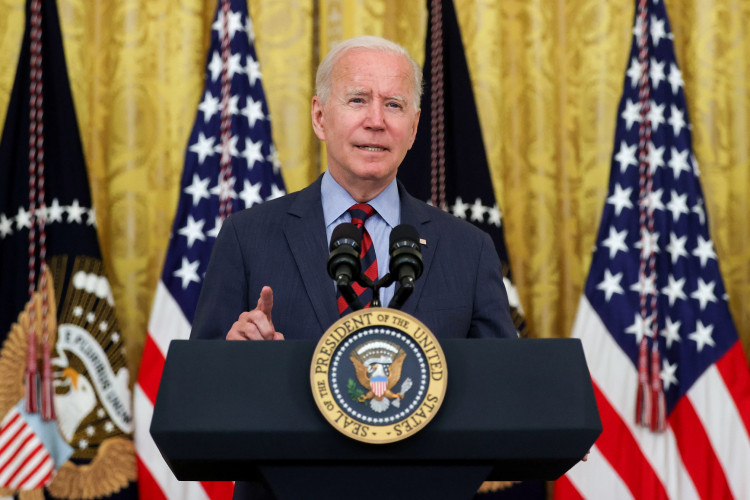President Joe Biden faced widespread scrutiny over his recent remarks on foreign policy matters, with reactions amplified following an off-beat appearance aboard Air Force One.
As he touched upon the urgency for humanitarian aid for Israel and Gaza amid their ongoing strife, the President's demeanor became a hot topic on social platforms like Twitter. Clips of his address showed him speaking in a subdued tone, which, coupled with a peculiar mark on his chin, sparked a flurry of tweets and comments, many of which highlighted concerns over his overall health and vitality.
One commentator noted, "This clip shows what Joe Biden looks and sounds like in a setting that is not 100% controlled and produced." Another emphasized, "Look at the fear in his handlers' faces behind him when he starts speaking - DISASTER."
However, beyond the discussions surrounding his appearance, Biden's message was clear. "Israel has been badly victimized," he remarked, underlining the immediate need to provide relief to both Israel and Gaza. Without diving deep into specific strategies, Biden articulated the pressing need to aid the affected regions amidst the escalating tensions.
This humanitarian emphasis wasn't confined to the Israel-Gaza situation. In an Oval Office address, Biden called for bolstered support for both Israel and Ukraine. Making a case against adversaries like Russian President Vladimir Putin and terrorist groups such as Hamas, Biden was emphatic: "When terrorists don't pay a price for their terror, when dictators don't pay a price for their aggression, they cause more chaos, death, and destruction."
Detailing the costs of unchecked aggression, Biden remarked, "We cannot and will not let terrorists like Hamas and tyrants like Putin win." He underscored the dangerous precedent it would set, suggesting that failure to confront Putin might embolden other potential global aggressors.
In tandem with his defense-centric address, Biden didn't lose sight of humanitarian needs. He secured an agreement with Israel and Egypt during his Israel trip to permit United Nations humanitarian supplies into the Gaza Strip. He also reaffirmed U.S. support for a Palestinian state, stating, "We cannot give up on a two-state solution. Israel and Palestinians equally deserve to live in safety, dignity, and peace."
Internally, Biden's comments weren't without repercussions. The U.S. Senate seemed attuned to his aid requests, particularly concerning Israel. The chamber approved a 97-0 resolution supporting Israel. The document highlighted the U.S.'s designation of Hamas as a terrorist organization and underscored its Iranian funding sources. Senate Democratic Leader Chuck Schumer reiterated the chamber's commitment, saying, "The Senate will back up this resolution with real swift, decisive action and resources."
Biden's message to the international community was resounding: the U.S. will stand steadfast against threats while emphasizing the importance of humanitarian assistance. As the nation and world dissect his policies and performances, his direction seems clear: a blend of strong defense initiatives coupled with compassionate humanitarian actions.






